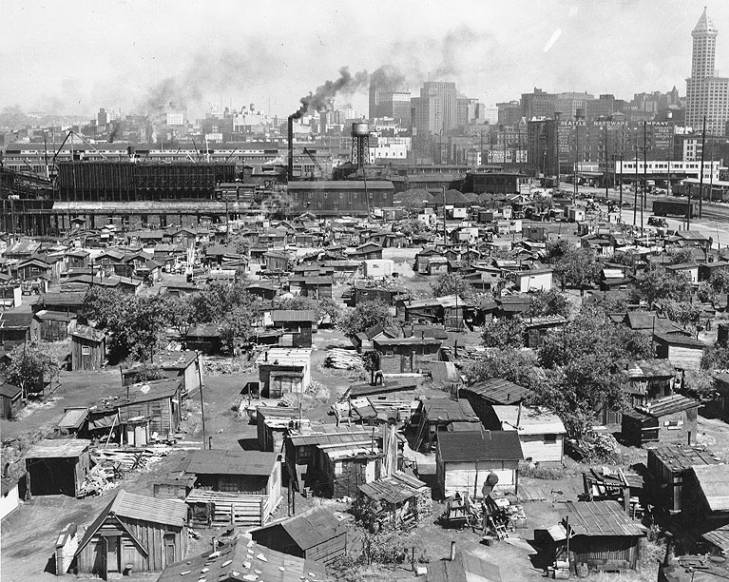In 1929 the United States Stock Market crashed which resulted in what we know today as The Great Depression. The Great Depression effected each American and their family very differently, but across the United States there was a common theme of homelessness and job scarcity .
In this audio file from NPR you can listen to three different peoples accounts on how the Great Depression Impacted their lives.
“Lives Of the Great Depression” 47 minute listen:
In this podcast you can listen to the three stories of the separate individuals effected by the Great Depression. A young woman entering her first year of college in New York, a man who self describes as a HOBO who travels via train across America, and an Asian American man living in San francisco. This Podcast is able to outline the differences as well as similarities of experiences of the Great Depression.
As a major theme of the Great Depression was Homelessness which swept across the United States. As people lost their homes many seeked out refuge in what are known as “Hoovervilles”. Hoovervilles were shanty towns that popped up all over the United States, most of the time located near large cities such as New York and Seattle.
The Name, Hooverville, came from the idea that President Hoover, a republican, was responsible for the housing and stock market crisis. The term was created by the Democratic National Committee.
Hoovervilles covered acres of public land with homes made from cheap metal, scraps of tin, and wood. These towns turned into communities sometimes claiming a mayor or leader.
Contrary to popular belief, these towns were not simply occupied by single homeless men. These small cities were home to women and young families with small children.

People living in these shanty towns were able to find a sense of community and a place for their children to grow up in somewhat of a normal setting.
In New York City the central park reservoir was drained and made room for thousands of people to set up their makeshift homes.

After the worst of the Great Depression was over, Hoovervilles remained active for years later. They remained surrounding major cities for years as a reminder of the everlasting effects the Great Depression had on the lives of those who lived there.

Bibliography:
Lives of the great depression. (2020, July 23). from https://www.npr.org/transcripts/893672249
Homeless shantytown known as HOOVERVILLE, foot of S. ATLANTIC ST. near the Skinner and Eddy SHIPYARDS, Seattle, WASHINGTON, June 10, 1937. (n.d.). from https://digitalcollections.lib.washington.edu/digital/collection/lee/id/83/rec/13
https://historydaily.org/hoovervilles-during-the-great-depression
Hoovervilles of the Great Depression. (2020, June 24). fromhttps://www.youtube.com/watch?v=EXgrmXeKjOU
Irma and Paul Milstein Division of United States History, Local History and Genealogy, The New York Public Library. “Squatters Colony – Gowanus Canal in Brooklyn – [View of Gowanus Squatters Colony from Clinton Street.]” The New York Public Library Digital Collections. 1934. https://digitalcollections.nypl.org/items/510d47dd-a386-a3d9-e040-e00a18064a99
